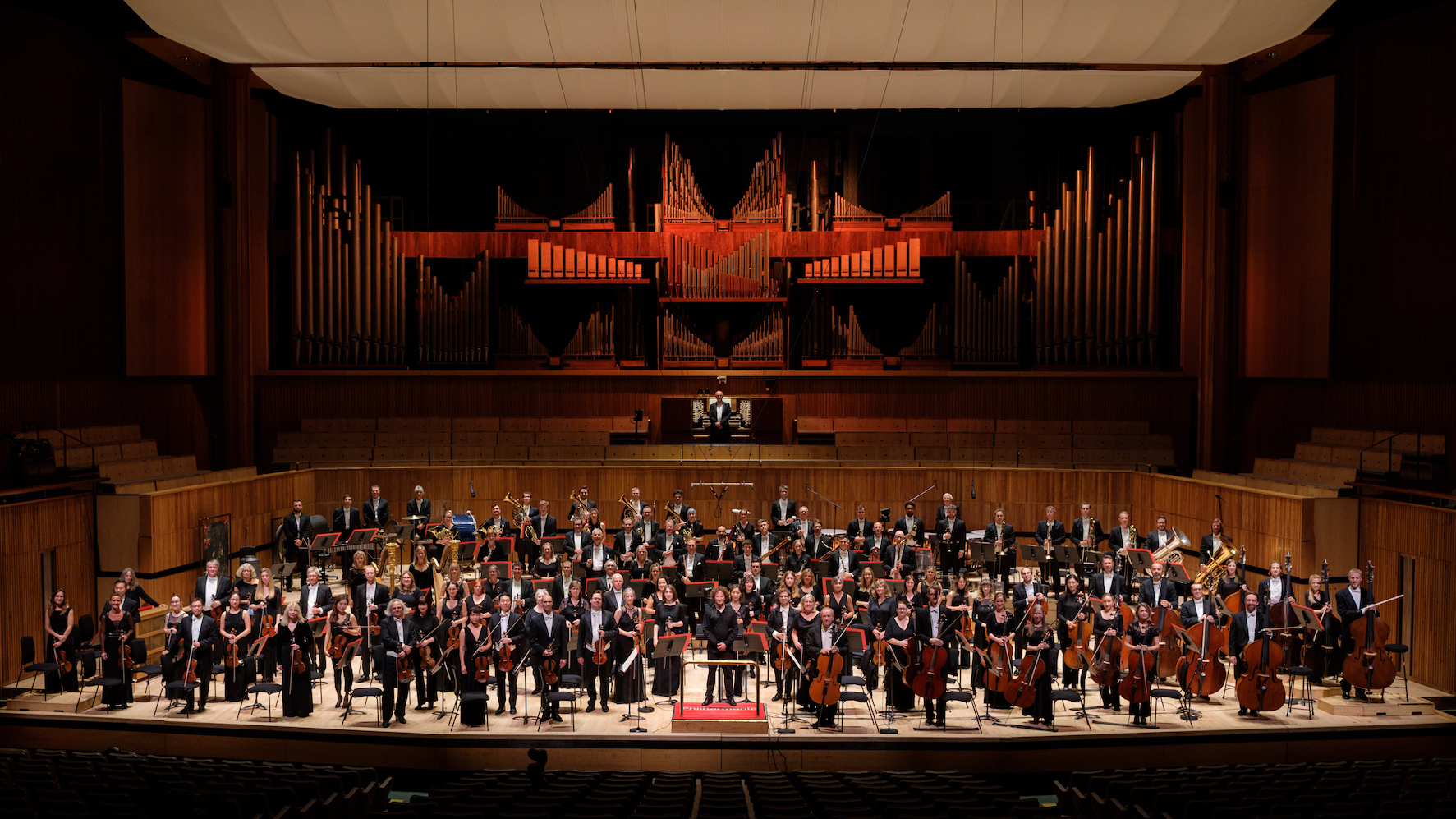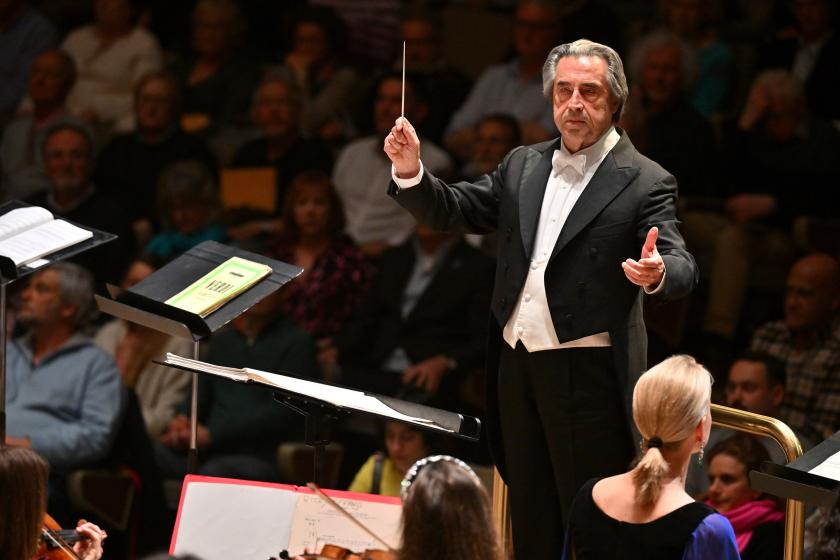Forget, for a moment, the legend and the lustre. If you knew nothing about Riccardo Muti’s half-century of history with Verdi’s Messa da Requiem for the writer-patriot Alessandro Manzoni – he first gave it with the Philharmonia back in 1974 – and came fresh to this conductor with this work, would it shake the soul? On the evidence of the 83-year-old maestro’s performance with the same orchestra at the Royal Festival Hall last night, the answer would have to be a resonant affirmative. The Philharmonia Chorus built their mighty wall of sound and feeling above the players, while in front the quartet of soloists united a stellar pair of opera-house luminaries – mezzo Elina Garanča and tenor Piotr Beczała – with more junior, but not lesser, colleagues: soprano Marie Lys and bass William Thomas (the latter a late replacement for Ildebrando d’Arcangelo).
Of course, fond memories and long devotion lay behind some of the sustained rapture that shot around the hall as a visibly drained Muti relaxed after the Libera me. But plenty came in response to what we had just heard. This was no retro tribute to an almost mythical pairing of eminent conductor and keystone piece but a new, and intensely involving, assault on Verdi’s craggy summit of awe, terror and consolation in the face of death. Looking at the depleted Muti, who had taken us to the gates of hell and back, return for yet another round of cheers, I thought of Keats as the poet braced himself to re-read King Lear (the tragedy that so obsessed Verdi): “for once more the fierce dispute/Betwixt damnation and impassion’d clay/Must I burn through”.
From the gentle, almost casual, right-hand gestures that launched the “Introit”, Muti’s lifelong immersion in this score meant that small hints and adjustments could generate major effects. He can dispense with any histrionics now; rather, he pivoted and pounced with restraint and economy, adding fine brushstrokes to the unfolding canvas when and how he chose. This was a spacious, often unhurried interpretation. Maybe it lacked much of the exclamatory fire and drive of his recordings. Veteran Muti connoisseurs might have found it too relaxed or expansive at times. Yet its moments of stillness and silence and its whispers – with rapt pianissimos from both orchestra and the supremely effective Philharmonia Chorus – counted for as much, or more, than the headline explosions of the Dies irae and elsewhere. Nonetheless, the Philharmonia brass and percussion delivered all the disciplined shock and awe that sonic thrill-seekers could desire.
The Chorus in particular, and director Gavin Carr, had a night to savour: glittering in razor-edged entries; earth-moving in the savage eruptions of the Dies irae but (in contrast) airborne, angelic and even playful in the Sanctus. From the boom of the Rex tremendae to the hush of the Agnus dei, they commanded each rung on the Verdian ladder of sound and sense that stretches from earth to heaven – then down to the brink of the inferno. As for the orchestra (pictured above by Luca Migliore), they played their hearts out for Muti. Yes, the trumpets (on- and offstage), the trombones and Peter Smith’s cimbasso (more contrabass trombone that tuba) shook the walls and quickened the blood in the Tuba mirum and elsewhere. Yes, Antoine Siguré’s timpani and Paul Stoneman’s percussion exhilarated and terrified. But time and again I relished the woods as they complemented the voices with questing, tender touches. Samuel Coles’s flute, Robert Looman’s piccolo, Timothy Rundle’s oboe, Rachel Gough’s bassoon: all helped bring the heavenly storm back to a truly human scale. Meanwhile, the glowing but not over-luscious strings helped accentuate the tension and anguish as well as the comfort and repose, with Louisa Tuck and the cellos especially memorable – not just in the Offertorio but throughout the drama.
As for the orchestra (pictured above by Luca Migliore), they played their hearts out for Muti. Yes, the trumpets (on- and offstage), the trombones and Peter Smith’s cimbasso (more contrabass trombone that tuba) shook the walls and quickened the blood in the Tuba mirum and elsewhere. Yes, Antoine Siguré’s timpani and Paul Stoneman’s percussion exhilarated and terrified. But time and again I relished the woods as they complemented the voices with questing, tender touches. Samuel Coles’s flute, Robert Looman’s piccolo, Timothy Rundle’s oboe, Rachel Gough’s bassoon: all helped bring the heavenly storm back to a truly human scale. Meanwhile, the glowing but not over-luscious strings helped accentuate the tension and anguish as well as the comfort and repose, with Louisa Tuck and the cellos especially memorable – not just in the Offertorio but throughout the drama.
The soloists – two established stars, two much-garlanded (relative) newcomers – presented a contrast in styles. Garança was on truly imperious form, the phrasing assured and persuasive, the tone creamily rich and full, the chest voice roaming the emotions of earth and the head rising to the heavens in the Liber scriptus or the Recordare. Beczała’s tenor, rounded and gleaming, felt almost too serene in the Ingemisco, the anguish of the lost soul maybe too confident of redemption. But this was a glorious instrument, whatever its theological status, and the velvet plangency of the Hostias gripped the heart.
Both Garanča and Beczała glided with majestic ease through their parts. Even more compelling, perhaps, if less musically immaculate, were the younger pair. For a stand-in, Thomas’s bass quickly achieved a proper grainy authority, laying down a firm marker of power and expression in the Mors stupebit and revealing dark, complex vocal colours in the terror-stricken soliloquy of the Confutatis. But the most individual progress of the soul was that undertaken by soprano Marie Lys. In the early sections she sounded a little overshadowed by the regal Garanča. In the trio of the Quid sum miser the two big names did dominate. But by the time of the Agnus dei, her duet with the magnificent mezzo did sound more like a shared prayer between equals – and beautifully so.
Lys finished, in her Libera me, with a fully dramatised monologue of suffering and craving, panic and hope. Not always polished, sometimes wayward in her delivery, but utterly gripping, she made her plea for release from the terror of annihilation into a searing dramatic cantata. It felt like singing in a different mode to her neighbours on the platform and, for a while, opened up the prospect of another sort of Requiem – if not one that Muti in this grand, and grandly moving, autumnal mood would lead. At any rate, the huge fabric of dread and solace and exaltation shrank to the frail human thread of her voice. In the end she, and he, and the rest of the company, did deserve those lingering cheers.














Add comment